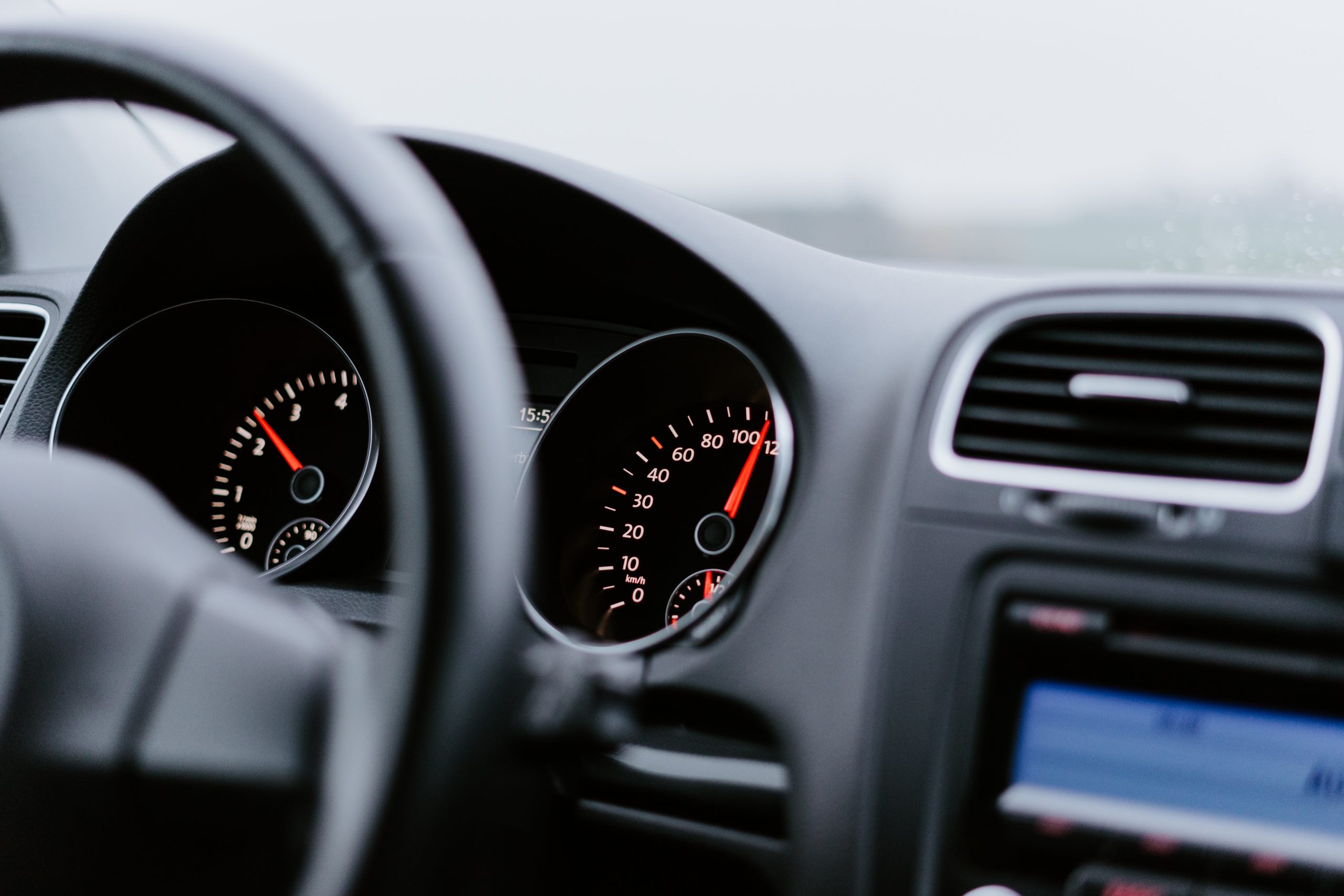You’re already running late for work, so you hop in your car ready to make the drive in record time. You turn the key and hear “click” and nothing else. Now you have to call your boss to explain the situation plus figure out what is going on with your car. While we can’t call your boss for you, we can help you to track down the problem with your car starting.
The dreaded clicking noise can be caused by a few different things, and we are going to help you narrow down which one it is. In addition, we’ll provide some tips on how to repair the issue and whether or not it’s even worth it to make any expensive repairs. If you’ve heard the clicking sound coming from your vehicle, then keep reading to get some help.
Table of Contents:
- Common Causes Of A Car That Won’t Start Because Of A Clicking Noise
- Are Expensive Repairs Worth It?
- Conclusion
Common Causes Of A Car That Won’t Start Because Of A Clicking Noise

Part of the answer to this depends on what kind of clicking you hear when you attempt to start the vehicle. If you are hearing a repetitive, fast clicking, then the most likely cause is the battery. Now, that being said, there are numerous reasons the battery may be giving you trouble.
First, a good battery should measure 12.6 volts or above when the car is turned off. With it running, the reading should be around 14 volts. When the battery voltage is too low, there is not enough power to hold your starter relays closed so that the starter operates and spins the flywheel.
Hence, when you turn the key, the relays are opening and closing in a rapid manner and you can hear the fast clicking. So, when you hear this sound, it’s almost always a sign of something wrong with your car’s electrical system. The battery is just one part of this system.
Your car battery may be dead because of its age. As batteries age, they can no longer hold a proper charge. If your battery is older than 5 years, then it’s likely that the battery has just worn out and needs replacing. It may work fine one day, and then it’s dead the next – especially in cold weather. If you think this may be the case, most auto parts stores can perform battery tests for you to determine whether it needs replacing. A jump start should get you going and allow you to drive to the store.
Another reason for a dead battery could be because you left something on in your car that drained the power. It could be the lights, radio, or some other accessory that draws power from the battery. When you have low battery voltage, it no longer has enough power to start the vehicle, although it might still run some accessories. So, just because your lights and radio work, that does not mean that your battery is fully charged. In this case, a set of jumper cables and another running vehicle should get you going, and you might need to use a battery charger to get the voltage back where it needs to be.
A bad alternator can also be the cause of a dead battery. As you drive, your alternator produces electrical current which keeps your battery charged. If this part malfunctions or stops working, then your battery will drain quickly because it is no longer being charged as you drive. Be aware that some people replace dead batteries only to have them drained again within a day. This is almost always a sign of a bad alternator! You will also get a low voltage reading when the car is running if the alternator is bad. You can use a multimeter to measure the voltage for a quick and easy check.
Another potential cause of the dreaded rapid clicking noise is corrosion on your battery terminals. When corrosion is present, the terminals are unable to make a solid connection. This prevents good grounding and does not allow the current to flow through the connection as it should and make its way to the starter.
A loose connection at the terminal can cause a similar issue. Your cable connections are a great place to start when trying to troubleshoot. Make sure there is no corrosion present and make sure the connections are good and tight. If you do see a buildup of corrosion, then you’ll need to clean the battery cables, connectors, and the terminals to ensure that you get a good, stable connection between them.
While not extremely common, you could have loose battery terminals. In this case, you almost always need a new battery. There is no good way to repair loose terminals, so buying a new battery is your best bet here.
Now that we’ve covered most of the causes of rapid clicking noises, let’s look at what might be the problem if your car just clicks once. If your car clicks just once and then stops, that usually means you have a bigger problem than just a dead battery or loose connection. Just one click probably means that you have a faulty starter.
A bad starter could be the result of a faulty starter motor, the starter solenoid, or some other problem with it. Jump-starting your car is not quite as easy when you are dealing with a bad starter. In this case, low voltage is not usually the issue, so a fresh battery charge is not going to do much good for a single click when you turn the key.
It is possible to bypass the starter solenoid and attempt to supply power directly to the starter motor. This can be dangerous though if you are not sure how to do this, and it could result in an electrical shock. So, do not attempt that unless you are a trained mechanic. That test can help determine whether the starter is indeed your issue.
The starter contacts can also become corroded or otherwise in disrepair. This leads to the contacts creating very high resistance; therefore, the current intended for the starter motor never makes it there. A new set of starter contacts are usually quite cheap (less than $20), although sometimes they cannot be purchased alone. Unfortunately, a new starter kit is often required even if it’s just the contacts that are bad.
While worse than a minor electrical problem, the next issues are not the end of the world. The clicking you hear could be a faulty fuel pump or bad spark plugs. Thankfully, spark plugs are not terribly expensive to replace. You can even replace them yourself in most cases or have it done at an auto repair shop for a couple hundred dollars. A faulty fuel pump might be the issue if your car cranks but won’t start.
Now, let’s discuss the worst case scenarios. If your car won’t turn over at all when you attempt to start it, it could be locked up. If moisture finds its way into the combustion chamber, it can become hydrolocked. This is a bad situation, and will require major internal repairs to your engine.
It is also possible that you could have a bent valve or broken piston. Either of these issues means major internal engine damage, and you are going to be looking at major repairs. In this case, you might consider selling your car to Auto Wranglers. Even if it’s total junk, you might be able to sell it for $500 or more.
Are Expensive Repairs Worth It?

The answer to this depends on a few things. First, how much is your car worth and how long do you plan to keep it? Also, how much will the repair cost and how long will it take? If you have a car that is in otherwise good shape and you simply need a new battery, then it’s probably worth it to invest in that repair.
A new battery will generally only cost you around $200. Many shops will swap the battery and not charge any labor as long as you purchase the battery from them. Even on high end vehicles, this repair is typically less than $400. That’s not too bad if you plan to keep the car for a while and it doesn’t have any other major problems.
However, if you have trouble tracking down the issue and can’t figure out what is causing the problem, then you might be looking at lots of labor costs. The last thing you want is to take your car to a shady mechanic who spends hours looking for the problem, only to announce to you that it’s going to take thousands of dollars to repair it.
Not to mention the fact that you will probably be without your car for several days and maybe even weeks depending on the repair. Electrical issues can be notoriously tough to diagnose, so they can eat through labor charges very quickly. If your vehicle is older or has other issues, then it’s probably not worth spending the money on. You might be better off selling your car to Auto Wranglers and putting some cash in your pocket for a new vehicle.
Starter issues will usually cost you a little more than a battery, so you really have to start making some decisions here about the best path forward. Replacing the starter on a vehicle can cost anywhere from $300 – $800 depending on the make and model of your vehicle. If you plan to get rid of the car soon anyway or if it has other problems like a slipping transmission or oil leaks, it might not be worth making that kind of investment in the car.
Now let’s talk about when your car has major issues. What happens if the mechanic determines that your car has a bent valve or other major internal damage. Perhaps your engine is hydrolocked and needs to be taken apart and repaired. Can you afford to pay $3,000 or more to have that repaired? Most people cannot. That’s why Auto Wranglers will make things easy on you. We will make you an instant cash offer to buy your car – and you don’t have to worry about making any of those repairs!
Conclusion
If you hear the dreaded click when you try to start your car, begin with the basics and see if it’s a simple fix. It could be as simple as a dead battery, and you might be back on the road easily. However, it could be much more involved and may require thousands of dollars in repairs. In that case, you should decide whether it’s worth spending the money on that car or not.
In most cases, it’s not worth the time and effort for a repair that expensive. You can easily sell your car in any condition to Auto Wranglers and get cash in your pocket to use as a down payment on a new vehicle. If your car is clicking, then just click on over to our website to get your free instant offer today. We’ll pay you cash within a day or two so that you can be back on the road in no time!


